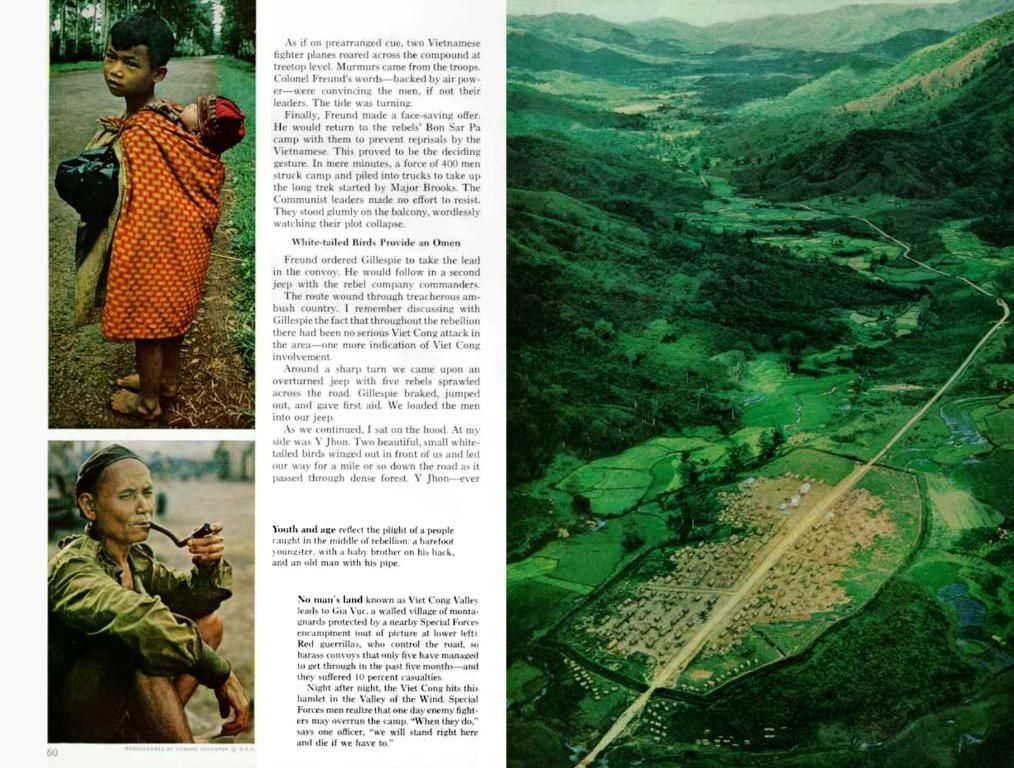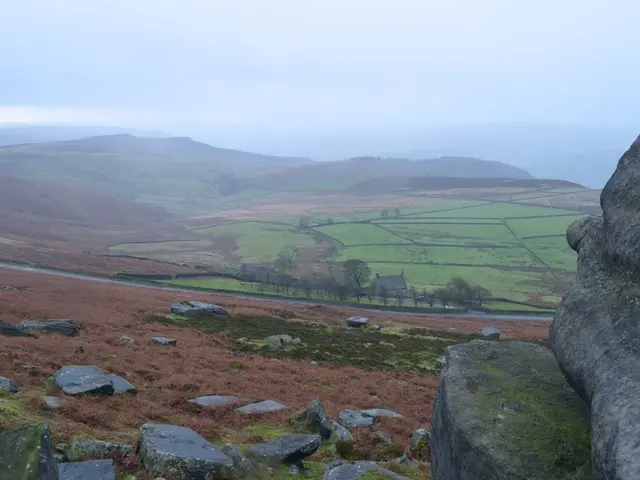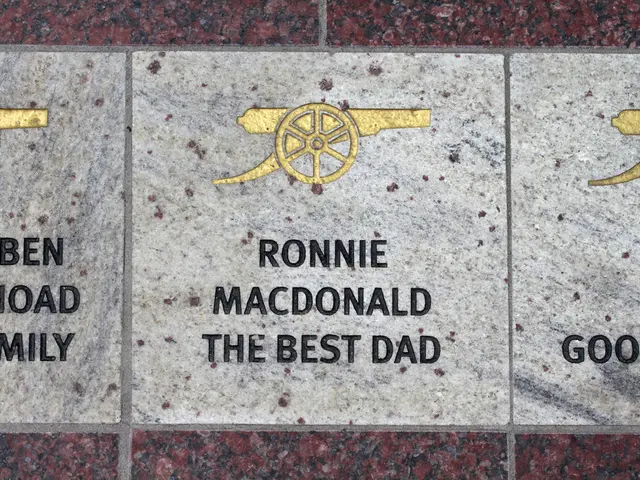Media's Impact on Focusing Public Attention toward the 'Galamsey Now Campaign's Imperative
The mining sector in Ghana serves as a significant economic contributor, predominantly through gold, diamond, manganese, and bauxite production. In 2019, gold dominated the revenue share at 93.28%, followed by manganese (6.17%), bauxite (0.54%), and diamond (0.01%) (GCM, 2019). The mining sector's fiscal contribution in 2019 was the second-highest at 7.7% of domestic revenue, and its contribution to total government revenue increased from 4.9 percent in 2018 to 7.6 percent in 2019 (GCM, 2019).
The mining sector encompasses large and small-scale miners, with the latter making up 15% of the sector's productivity and accounting for 34% of gold mining in Ghana (Kervankiran, Dziwornu, & Temurçin, 2016). The large-scale mines, primarily controlled by foreign companies, contribute 85% of the sector's productivity. In contrast, small-scale mining employs over a million people, with twice as many miners operating illegally (Hilson & Osei, 2014; Teschner, 2012).
Despite these economic benefits, mining activities present adverse impacts on the environment, health, communities, and the long-term sustainability of ecosystems. On the other hand, the media plays a vital role in building a decent society. They inform the public, highlight critical issues, and create platforms for engagement.
In Ghana, the media has gained increasing influence in policy processes and social accountability. Their role has been instrumental in setting the agenda for issues like galamsey, an issue that has garnered national attention in recent years. The media undeniably sets the pace and direction for societal issues, offering a national consensus (Anokwa & Salwen, 1986).
The media took the lead in addressing the galamsey issue, rallying various stakeholders, such as some communities, political leaders, NGOs, and CSOs, to express concerns about the extent of galamsey and its impact on the country (GCM, 2019). This collective effort laid the groundwork for the "Stop Galamsey Now" Campaign, starting as a social advocacy initiative by various media houses and eventually gaining widespread attention and support.
The media's role as a watchdog was evident in the campaign, with media houses endeavoring to hold government officials, communities, organizations, and individuals accountable for their actions or inactions concerning illegal mining. They employed various strategies, including in-depth reporting, investigative journalism, documentaries, and hosting expert interviews to create awareness and pressure authorities to enforce laws and regulations (GCM, 2019).
The "Stop Galamsey Now" Campaign yielded positive outcomes such as engaging the public, raising politicians' and law enforcement agencies' awareness, sensitizing miners, and restoring water bodies to their natural state. The media, therefore, played a pivotal role in setting an agenda for change and improving rivers, streams, valleys, and water bodies affected by illegal mining activities.
However, the achievements of the campaign were hampered by factors such as political interference, corruption, and security risks for reporters during fieldwork. Despite these challenges, the media's efforts were lauded as reaching over 100% success because the campaign has set a precedent for future environmental campaigns in Ghana.
Kojo, a Social Policy and Communications Campaign person with over a decade of experience, believes that the media's influence in Ghana is evident and consequently recommends that the media continues to represent the nation's interest and promotes its autonomy in doing so.
References:- GCM (2019). Minerals Commission, Annual Report, 2019.- Hilson, G. (2002). Small-scale mining in Ghana: Gender dimensions of a contested development path. Natural Resources Forum, 26(3), 206-217.- Hilson, G. (2009). Environmental justice in the international development agenda: Reflections from small-scale mining in Ghana. Journal of Environmental Management, 90(6), 1866-1874.- Kervankiran, G., Dziwornu, A., & Temurçin, Y. (2016). The impact of informal mining and quarrying on occupational health and safety in Ghana and Turkish contexts. Social science & medicine, 168, 205-216.- Roe, J., & Samuel, G. (2007). Social Institutions, Remote Sensing, Geographic Information Systems and Sustainable development in Africa: The case of the private sector in Ghana. Annals of the Association of American Geographers, 97(3), 574-597.- Safo, K. (2008). The role of media in Ghana’s fourth republic. Journalism Practice, 2(3), 341-350- Teschner, P. (2012). The Political Economy of Artisanal and Small Scale Mining: The Case of Ghana. Extractive Industries and Society, 1(1), 94-110.- Asomaning, K. A. (2005). Media in governance and democratic development. African Journalism Studies, 26(1), 58-74.- Anokwa, P. B., & Salwen, M. R. (1986). The media and political communication in Ghana: A case study of reference group mobilization. Journal of Communication, 36(3), 73-85.- Kwansa-Aidoo, K. (2001). Agenda Setting and Framing in the Ghanaian Media: The Case of Environmental Reporting. Journalism Practice, 1(1), 12-32.- Aryee, M. A. (2012). Legal framework regulating the informal small-scale gold mining industry in Ghana: A case study of the Tarkwa and Prestea districts. Nordic Journal of African Studies, 21(3), 309-325.- Ghanaweb (2020). IMCI and the fight against illegal mining. [online] Available at: https://www.ghanaweb.com/GhanaHomePage/investigations/IMCI-and-the-fight-against-illegal-mining-846366- GCM (2021). Minerals Commission, Annual Report, 2020-2021.
- The mining sector in Ghana not only contributes significantly to the economy but also plays a crucial role in the development, employment, and revenue generation of the country.
- In addition to its economic contributions, the mining sector has a profound impact on the health, environment, and long-term sustainability of ecosystems.
- The media in Ghana, through various strategies like investigative journalism and expert interviews, has set the pace for societal issues such as galamsey, an issue that threatens the health of the environment and communities.
- The media's role in policy processes and social accountability has been instrumental in addressing issues like galamsey, which has gained national attention and led to the "Stop Galamsey Now" Campaign.
- The "Stop Galamsey Now" Campaign has yielded positive outcomes, engaging the public, sensitizing miners, and restoring water bodies affected by illegal mining activities.
- Despite challenges such as political interference, corruption, and security risks for reporters, the media's efforts in the campaign have been lauded as reaching over 100% success, setting a precedent for future environmental campaigns in Ghana.
- Kojo, a seasoned Social Policy and Communications Campaign person, believes that the media's influence in Ghana is evident and should continue to represent the nation's interest and promote its autonomy.
- In the realm of education and self-development, media plays a vital role in disseminating knowledge about critical issues such as climate-change, environmental-science, and lifestyle.
- The media also shapes the entertainment industry, influencing general-news, crime-and-justice, and sports reporting.
- Addressing challenges like political interference and corruption requires a collaborative effort from various sectors, including the media, government, NGOs, and CSOs, to ensure robust environmental policy, science, and technology to foster a sustainable economy andEmployment.








